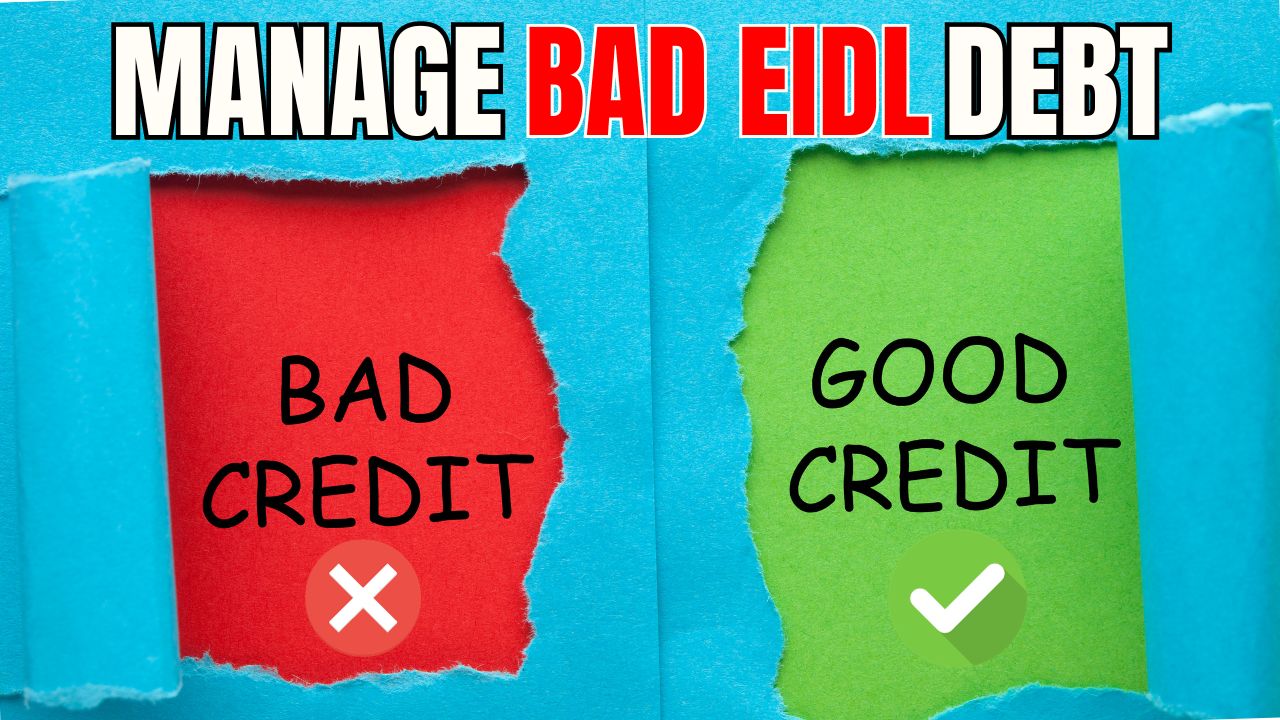Have you been approached by people who claim they can repair or restore your credit and improve your credit score?
At some point in EVERY person’s life and career, your credit score will be reviewed, whether for financing, credit cards, insurance, or other applications.
We see how often this topic comes up in our business including, in our humble opinion, how people obsess over things they have no control over. This is one of the many reasons we started our Biz Glitch 366 Project.
Spoiler alert: Bad credit, if it was truly your account, absolutely CANNOT be permanently removed from your credit report. Period, full stop.
The Bottom Line: if a credit account reported on your credit report (whether good or bad) was truly your account, it cannot be permanently removed because at some point the investigation will conclude and the disputed information will be reported back onto the credit report.
We know that when certain activities in business operations require financing pursuits, this could become an emotional crusade because most people will get preoccupied with various concerns such as:
- “Are they going to run my credit?”
- “Will it be a hard hit?”
These are wasted emotions because if the credit precludes a business owner from proper financing channels to obtain working capital, the damage is already done. It’ll take longer to address the problem than the timeframe the business owner was expecting to finalize a deal to walk away with some cash.
Watch this one-minute video on removing defaulted and discharged loan obligations from your credit score and how to protect yourself from scammers.
Here are some credit basics to know, and the reasons why credit repair/restoration is a scam:
✅ Federal regulations allow a consumer to dispute an “error” on their credit history. Examples of errors can be a misspelled name, incorrect address, or credit account in the name of a family member with a similar name. These are the typical “errors” that absolutely can and should be disputed and absolutely can be permanently corrected on a credit report.
✅ A credit bureau (typically the “Big 3,” TransUnion, Experian, and Equifax) has 30 days to investigate and resolve or respond to the consumer’s dispute. During the dispute investigation period, the credit bureau is required to remove the disputed item until the investigation either proves the dispute to be accurate or proves the information to be correctly reported.
Often, the investigation period can take longer than the allowed 30 days. In that case, the credit bureau sends notification of the continuing investigation for an additional 30 days to remain in compliance with Federal regulations. The disputed item(s) remain “removed” as the investigation continues.
✅ If the dispute on a credit report is for a credit account, the credit bureau contacts the original creditor to provide proof of the validity of the account and reported information.
For example, if a consumer named Joan Maria Hall disputes a mortgage account that appears on her credit report because the account belonged to her mother, Joan Helen Hall, the credit bureau requests verification from the mortgage holder. Because the dispute can be verified as an account in a different person’s name, when the mortgage holder reports the correct name, the credit bureau is required to permanently remove the disputed account.
However, if the disputed credit account is truly in the name of the person filing the dispute, then the disputed account will be restored to the credit report once the investigation determines the account has been accurately reported by the creditor.
✅ The “scam” of credit repair/restoration is the presentation of a credit report showing the disputed account(s) removed. What the scammers don’t tell the unwitting consumer is the investigation is still ongoing and the “clean” report is only the result of the temporary removal(s) of accounts and the 30-day extensions of the investigation period.
✅ Updating status: it is a worthy exercise to dispute credit accounts that report incorrect status. For example, if a collection account has been paid off, but the credit report shows the account as still “open” and not paid, then a dispute should resolve that account to show as paid.
Likewise, a single account might be reported incorrectly as multiple different accounts.
Here’s a 30-second video on how people are also falling for scams about removing EIDL from your credit report. Please stop listening to this nonsense.




